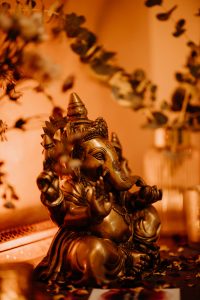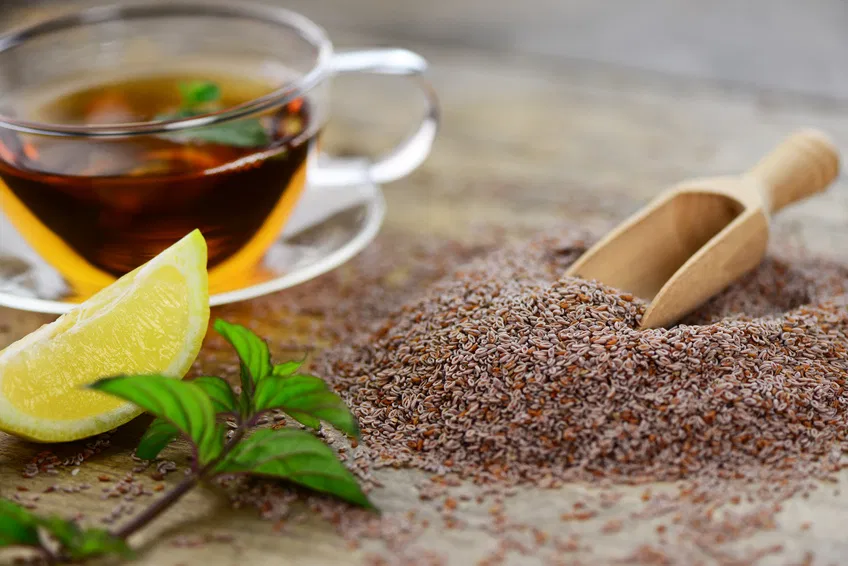Do you often have problems with your sleep? Do you find it difficult to get some rest in the evening? Do you feel low on energy during the day because you can't recharge your batteries at night?
The importance of sleep
The Charaka Samhita, the oldest collection of scriptures on Ayurveda, says: "Happiness, nourishment, strength, masculinity, femininity, balance, knowledge and life depend on proper sleep."
Sleep is understood to be a natural, easily reversible periodic state of many living beings. Sleep is characterised by these features:
- Absence of alertness
- Loss of awareness of one's environment
- Typical posture (lying down with eyes closed)
- Occurrence of dreams
- Changes in brain activity and physiological functions
The influence of the doshas on your sleep
Ayurveda aims to balance the three doshas: Vata, Pitta and Kapha. This is influenced by one's own habits and routines as well as by the Nutrition and is also important for the quality of sleep.
In Ayurveda, sleep is the most important regeneration phase of the day. The phases of the day are related to the different doshas:

Kapha time: until 22.00
Your own energy sinks and body, mind and soul become tired. It is recommended that you go to bed before 10 pm, as the Pitta time afterwards has an activating effect.
Pitta time: 22.00 until 02.00
In this phase, the deposits in body, mind and soul are cleansed from the inside out.
Intense dreams and feelings during sleep can result from too much pitta energy. Reducing your mental pressure and lowering your physical acidity can help. To do this, avoid acid-forming foods such as alcohol, coffee, sugar and raw meat. Legumes and cabbage, on the other hand, have an acid-balancing effect.
Vata time: 02.00 to 06.00
The deposits are removed. For this, however, it is important that the digestion is already completed and your body can concentrate on the deep cleansing.
When we sleep very shallowly, the Vata energy can easily wake us up. A balanced daily rhythm, relaxation and light meals in the evening support you in a better sleep.
Sleep recommendations for the constitution types:
- VATA needs at least eight hours of sleep, now and then more is recommended.
- For PITTA eight hours of sleep is suitable.
- KAPHA gets along well with less sleep, i.e. about seven to seven and a half hours per night. Kapha types become lethargic with longer sleep. As a rule, this constitution type also has no problems falling asleep.
Thefollowing applies to all constitution types: You should get up before 6 a.m., as the Vata principle of movement is active at this time. From 6 o'clock in the morning Kapha is active again and it is more difficult for you to get up.
10 tips for better sleep
Sleep problems arise because there is too much movement in the body due to an excess of Vata. This is caused by stress, lack of time and an unbalanced lifestyle. It is important to know the signs - for example, many snacks between meals, a lack of daily routine, poor sleep, Vata-promoting foods - and to react to them.
The following tips can help you sleep better:

- Quiet: Your bedroom should only be used for two things - sleep & love. Electronic devices disturb the relaxing atmosphere.
- Darkness: Avoid artificial light sources in the evening and switch from reading to an audio book, for example. Darkness helps you to relax and become tired.
- Switch off: Before going to bed, reduce agitating stimuli from electronic devices and instead pamper your body with a massage, aromatherapy or similar.
- Distraction: If you can't fall asleep, go into another room, read a book, listen to music or take a walk in the garden, this will tire you out and help you relax before you go to bed.
- Exercise: Get enough exercise during the day and do calmer sports such as yoga in the evening. This lowers the heart rate, helps release endorphins and reduces stress. Meditation exercises can also help you fall asleep.
- Time: A walk at sunrise or sunset resets your biological clock.
- Nutrition: Eat a balanced diet in the morning and at lunchtime and a light diet in the evening. Also avoid excessive consumption of sugar, coffee and alcohol so as not to put additional strain on the digestive system. A cup of tea with passion flower or lavender and passion fruit as well as fragrant oils help the body to relax in the evening.
- Rest: After a meal, a slow walk or resting on the left side (vamakukshi) helps digestion. The Kapha type should be careful, however, as they often have difficulty becoming active again after a nap.
- Sleeping position: In general, Ayurveda recommends that you sleep on your left side. From a physiological point of view, this supports digestion and glymphatic drainage. Our tip: If many thoughts prevent you from sleeping, sleep on the right side. The opening of your left nostrils opens the Ida Nadi cooling energy channel.
- Sleepingdirection: It is ideal to sleep with your head facing south or east. Avoid sleeping with your head facing west or north.
Since sleep and sleep disorders are a common problem in our society, we took a closer look at them in our #healthtogo livestreams. You can find more tips in Part 1 and Part 2 our video series on this topic.
Conclusion
A good night's sleep has a holistic effect on the balance of body, mind and soul and is influenced by everyday habits and your diet. Throughout the day, the 3 doshas have different effects, which is why it is important to adapt your sleep rhythm to the predominant dosha and to your own constitutional type. Daily RitualsA cosy atmosphere, sufficient exercise, a balanced diet as well as the right sleeping position and direction promote a relaxed sleep in which the body has the opportunity to regenerate.





